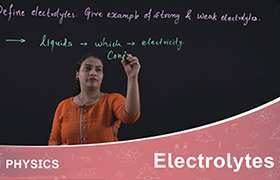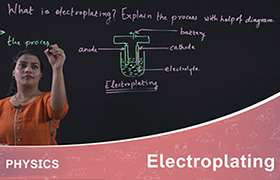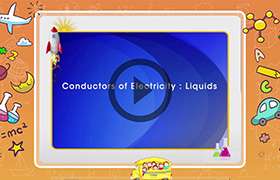CBSE Class 8 Answered
Is the statement true-?
--- current flow in conductors due to flow of charge but current flows in liquids due to flow of ions.
PLEASE EXPLAIN.....
Asked by yogeshmittal177 | 08 Oct, 2015, 09:10: PM
Metals allow electricity to pass through them and are called conductors. The electric current is due to the direction of flow of electrons in metals. The actual flow of electrons is from negative to positive terminal of a cell. Direction of the current is always from higher potential to lower potential.
An electrolyte consists of equally and oppositely charged ions (as a result of dissociation) both of which are capable of moving in a medium. This is a liquid state conductor in which electric current is due to the motion of both +ve and -ve ions. Ions move towards the oppositely charged electrodes.
Answered by Faiza Lambe | 09 Oct, 2015, 09:13: AM
Application Videos
Concept Videos
CBSE 8 - Science
Asked by desaitd | 06 Jan, 2024, 10:38: AM
CBSE 8 - Science
Asked by vilaspatil77 | 27 Sep, 2023, 04:06: PM
CBSE 8 - Science
Asked by vasudevasrinivasan | 18 Mar, 2023, 12:46: PM
CBSE 8 - Science
Asked by VVMN.S0036 | 23 Sep, 2021, 06:47: PM
CBSE 8 - Science
Asked by suveer20052411 | 21 Feb, 2019, 11:09: PM
CBSE 8 - Science
Asked by Topperlearning User | 04 Jun, 2014, 01:23: PM
CBSE 8 - Science
Asked by Topperlearning User | 22 Nov, 2013, 02:38: AM
CBSE 8 - Science
Asked by Topperlearning User | 04 Jun, 2014, 01:23: PM
CBSE 8 - Science
Asked by Topperlearning User | 13 May, 2014, 04:25: PM
CBSE 8 - Science
Asked by Topperlearning User | 04 Jun, 2014, 01:23: PM




